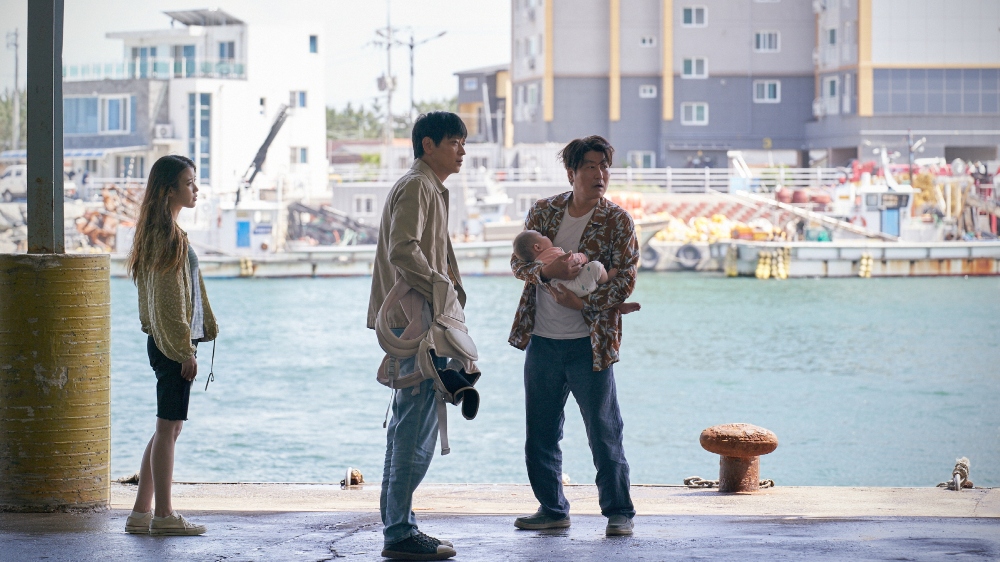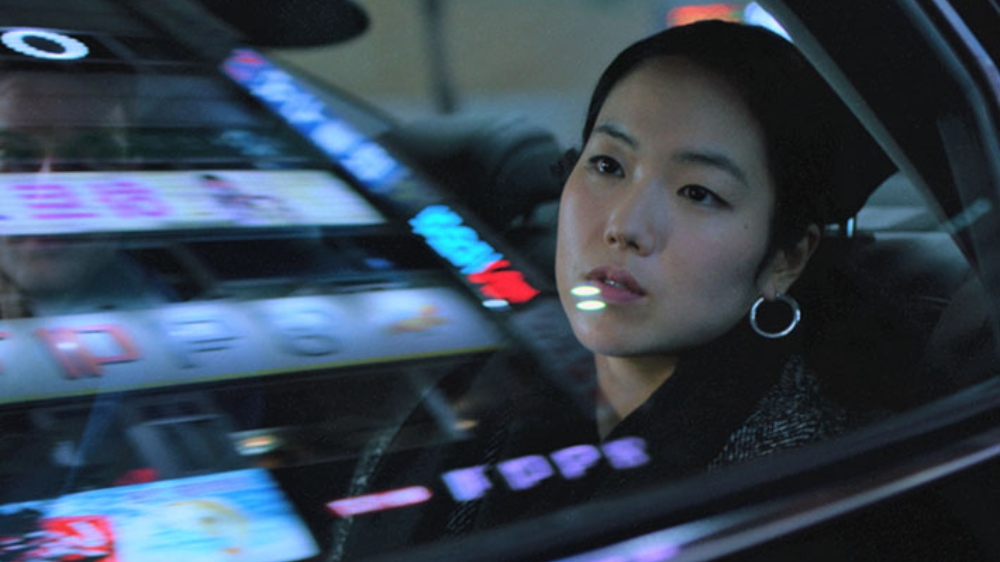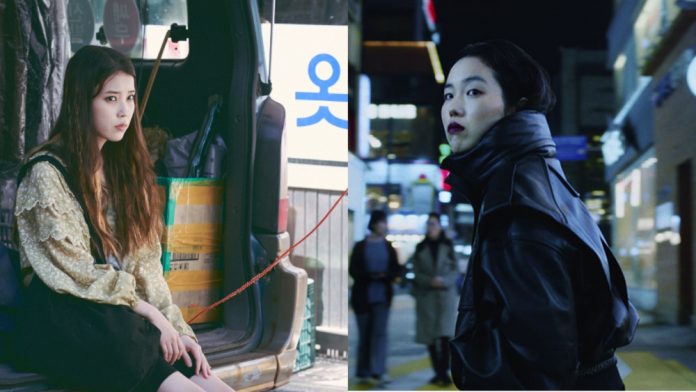Believe it or not, there was actually a time where Korean culture wasn’t all the rage. Before the “Korean Invasion” that saw K-Pop bands take over American music a la the “British Invasion” of the 1960s and before the South Korean film Parasite won Best Picture at the Oscars, it was quite hard to be comfortable in your own skin as an adopted Korean-American.
Since I don’t listen to K-Pop, it wasn’t until the Academy’s embrace of Parasite, and then Minari the following year, that I actually felt seen on the big screen. Even Justin Chon’s Blue Bayou resonated strongly with me given the authenticity of how his character was treated by Southerners, as I spent a year during college down South. Having that sense of fulfillment wasn’t something I had necessarily yearned for in my life — it was suppressed under a lot of shame and anger — but this year, two films came out that gave me a deeper appreciation of what it feels like to be seen. The two films that hit so close to home and had such a great emotional impact on me were Broker and Return to Seoul.
For some background, when I was around seven years old, my family moved from New York City to suburban Pennsylvania, which as you might imagine, was far less diverse. I was immediately greeted by comments about how my “eyes were always closed” or questions about why I didn’t look like my parents. While I’d like to believe that I handled myself pretty well during these challenging moments in the presence of others, there’s no doubt that I repressed a lot of anger and resentment toward my biological parents that would only occasionally rise to the surface throughout my childhood.
What really resonated with me about Broker and Return to Seoul comes down to how they portray adoption from different perspectives, and how those perspectives play next to one another. They’d make for a great double feature, as they each provided some of the most cathartic movie moments I’ve ever seen — especially once I connected the dots between the two. We see the perspective of a mother giving up her child in Broker, and the perspective of the adoptee in Return to Seoul. Whenever people talk about the power of cinema, I’ll tell them how this particular Korean adoptee figuratively discovered his own biological mother through these two films, which have helped me find a way to forgive, and, ultimately, forget.

“Don’t have a baby if you’ll abandon it,” states one of the detectives staking out a church where a young mother named So-young (masterfully played by K-Pop star IU, also known as Lee Ji-eun) drops her baby off in front of the church’s baby box. Within the first five minutes of Hirokazu Kore-eda‘s Broker, the film had already hit home, as growing up, I found myself asking ‘Why would my parents abandon me? Did they not love me? Was it me, not them?‘
Now, being older and (somewhat) wiser, I recognize that there are various reasons why I was put up for adoption and that a mother’s difficult choice to do so is likely not a black-and-white issue. First, like So-young, my biological mother was still technically a teenager when she gave me up. I’ve also been told that she really wanted to keep me, but obviously, that isn’t what ended up happening. My mother’s financial situation and the logistics of taking care of a baby were other factors that I’m sure were taken into consideration, and now that I’m heading into early adulthood with my own bills to pay and work to do, I can understand how unprepared my biological parents may have felt. But how can you not help but feel slightly unwanted when you know that you were put up for adoption?
Much of Broker‘s two-hour runtime is devoted to finding So-young’s baby the right family. When So-young first drops off her baby, I was transported back to the years of my childhood and adolescence, and all of those feelings of anger and resentment returned, though they slowly dissolved as So-young’s journey progresses. At one point in the film, Dong-soo (Gang Dong-won) — one of the brokers — grows attached to So-young’s child and proposes the idea that she keeps her son and begins a new life with him. For one reason or another, it was at this moment that I finally sympathized with So-young as she stared from the lofty perch of a Ferris wheel. Knowing that she can’t run forever and must eventually face the music of the things she has done, she declines, and in that moment… I can’t quite explain it, but I felt like I could forgive my biological mother. The circumstances may not be the same, but they’re similar, and something about the journey that So-young goes on throughout the film helped me feel ready to forgive my biological parents and finally heal the wounds left by so many years of feeling abandoned.
To flip to the other side of the coin, Return to Seoul is anchored by newcomer Park Ji-min, who plays Freddie, a South Korean adoptee in her mid-twenties who was raised in France. It’s evident from the very first scene that she’s a fish out of water in the country that could very well have been her home as we quickly learn that she doesn’t speak Korean — a trait we both share — even though she has traveled to Korea on a whim to search for her own biological parents.
Freddie goes to the adoption agency in Korea, which offers one key piece of information — you can contact your biological parents asking to meet up to three times. Should you not hear back within those three attempts, the case is “definitively closed.” Luckily, Freddie’s biological father responds and wants to meet. This brought me back to one of my biggest fears about meeting my biological parents. What if I liked them more than my adoptive parents? I mean, my adoptive parents know how much I care about them and that I would never abandon them as my biological parents did to me, but still, what if I met my biological parents and they wanted me to stay in Korea? What if we somehow clicked in a way that would leave me wanting to stay behind? Whether realistic or not, these were some of the concerns I had whenever these kinds of questions were proposed to me as a kid.
When Freddie does meet her biological father (Oh Kwang-rok), it’s a bit standoffish, to say the least, and that’s certainly understandable to some extent, right? There’s got to be a certain awkwardness when meeting your biological father for the first time as an adult. To make matters worse, Freddie’s biological father suggests that the meeting would be going better if she simply spoke Korean in a way that rubs Freddie the wrong way (as it would most), and though I personally didn’t read any malintent in that line, which her father says to a translator during dinner with a warm (but not passive-aggressive) smile, it still felt like a dagger in my heart. How could he say such a thing to someone he abandoned? She doesn’t know Korean because you didn’t stick around to teach her!
Even though Freddie and her biological father don’t necessarily hit it off, he encourages her to stay, hoping to make up for the time they’ve lost together over the past 25 years. At first, Freddie resists, though she does eventually make her way back to Korea sometime later.

Director Davy Chou shows impressive restraint in one of the film’s final (and most pivotal) scenes. After two acts of build-up and searching for her biological mother, Freddie does get the chance to meet her, and yes — spoiler alert — it takes more than the three attempts usually made by the adoption agency. But nonetheless, instead of going with a blow-up confrontation in which Freddie finally gets to unleash all of the pain that has built up over the last 25 years, Chou opts for a soft scene between the two women. There’s a hug and a few short words exchanged, and then the scene ends. No shocking revelations directly come from this, but once again I was able to sympathize, and this time, given the film’s perspective, it felt even more personal, allowing me to further forgive my biological parents.
Whenever my mother would try and bring up my biological parents growing up, I shut it down immediately. I didn’t have any interest in meeting the man and woman who I felt abandoned me. Sure, the decision to give me up for adoption rather than leaving me an orphan ultimately gave me a wonderful family that I wouldn’t trade for the world, but it’s still hard to swallow the fact that someone decided to give me up. Now, however, after seeing the journeys that a young mother and an adoptee go through, respectively, in Broker and Return to Seoul, I may reconsider that.
In a weird way, I feel like I’ve already met my biological mother after watching these films. Lee Ji-eun’s portrayal of So-young helped me find some peace in the decision that was made for me over 21 years ago. Now it’s her face that comes to my mind when I think about my biological mother. It was equally fulfilling to see the rage and abandonment that Park Ji-min felt in Return to Seoul. These two films made for a uniquely powerful one-two punch given my own history, and they complement each other, as each fills in the blanks that the other one leaves. That these two stories could have such an impact on my own self-worth and sense of identity speaks to the power of cinema more than any of the year-end prestige films that only aspire to such ambition.



